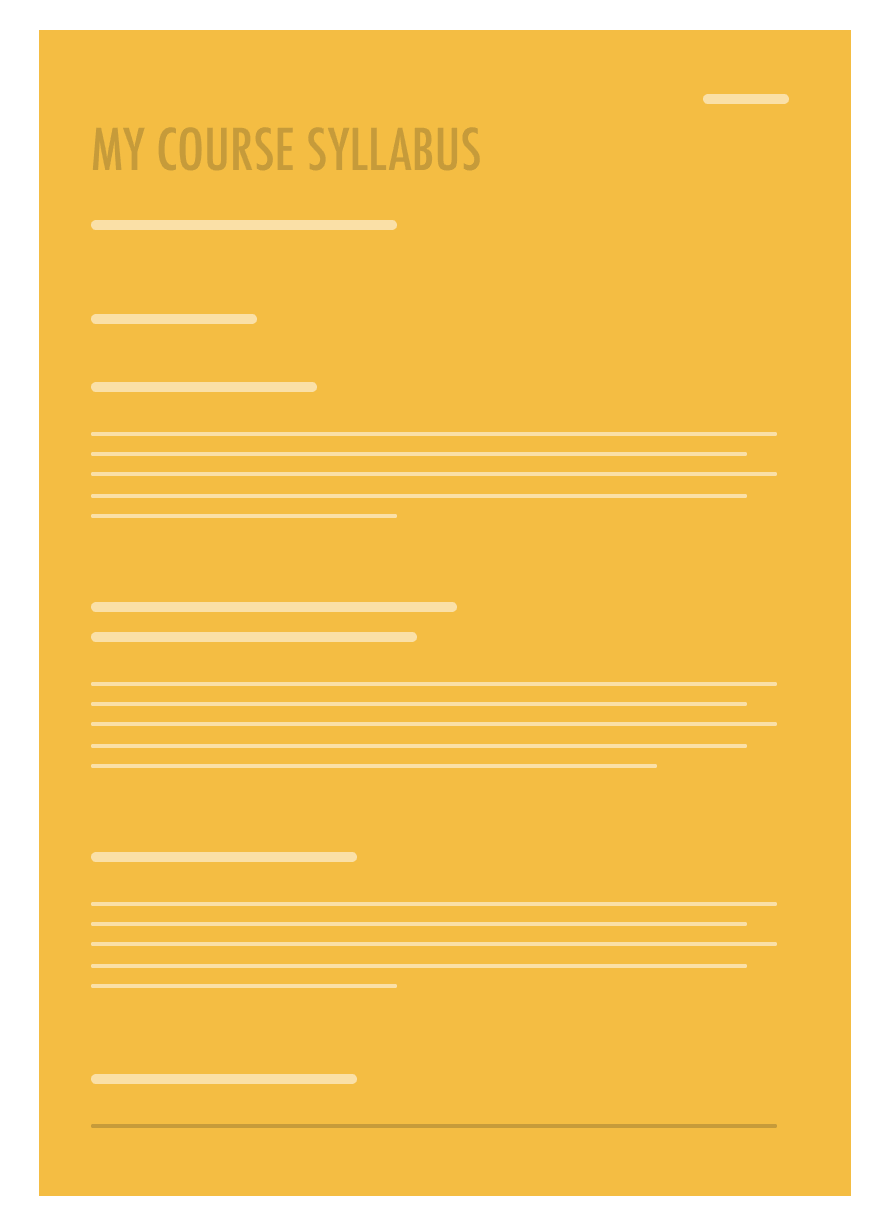On your syllabus, write the following keywords in sections that reflect the associated description.
-

-
-
-
DEMYSTIFYING
Provide first-time college students with information they need to successfully complete the course in clear, plain language with limited to no academic jargon.
-
MYSTIFYING
Do the opposite.
-
-
-
WELCOMING
In their tone and content, communicate care, support, respect, and inclusion as class norms.
-
UNWELCOMING
Do the opposite.
-
-
-
VALIDATING
In their tone and content communicate a belief in students’ ability to be successful.
-
INVALIDATING
Do the opposite.
-
-